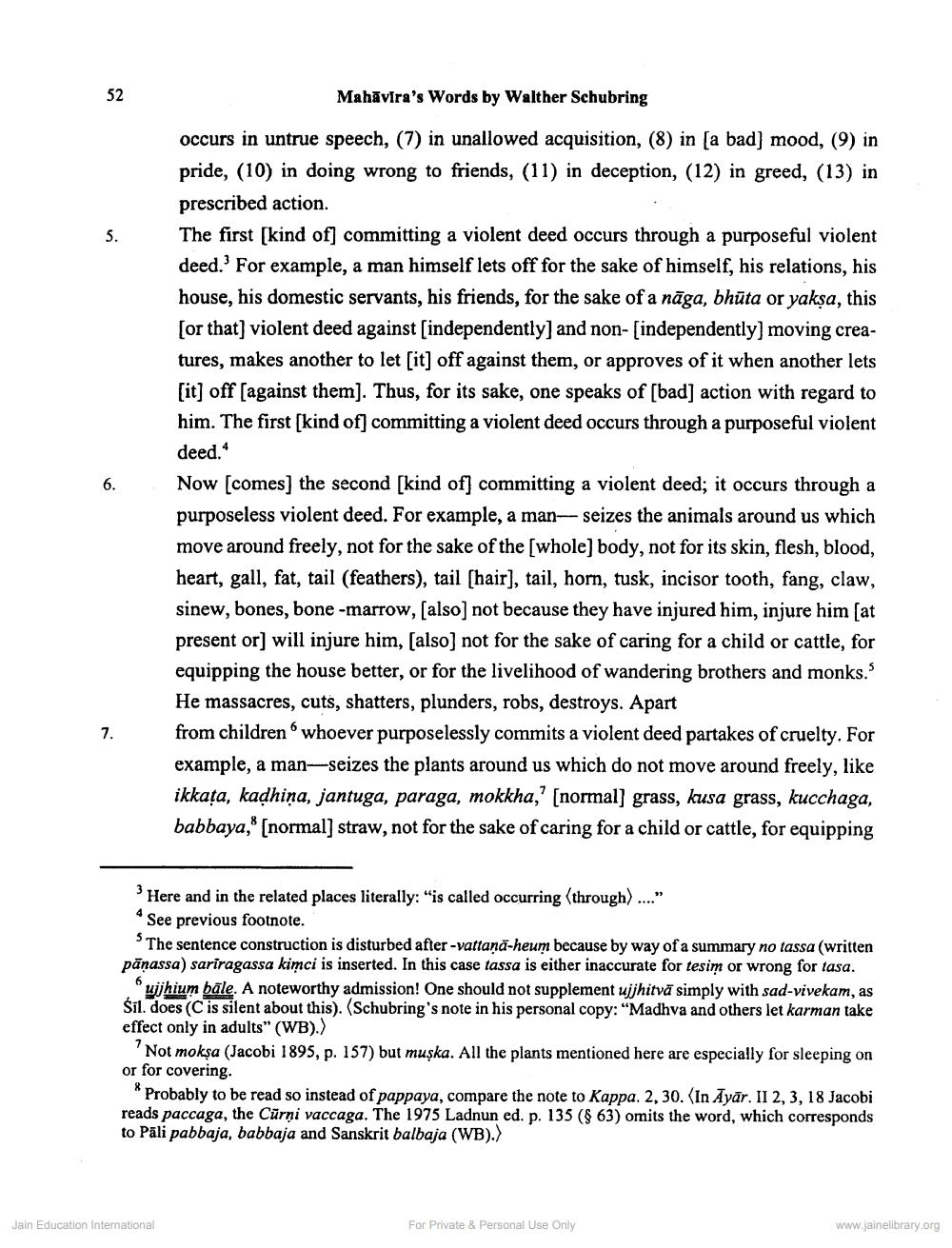________________
52
5.
6.
7.
Mahavira's Words by Walther Schubring
occurs in untrue speech, (7) in unallowed acquisition, (8) in [a bad] mood, (9) in pride, (10) in doing wrong to friends, (11) in deception, (12) in greed, (13) in prescribed action.
The first [kind of] committing a violent deed occurs through a purposeful violent deed.' For example, a man himself lets off for the sake of himself, his relations, his house, his domestic servants, his friends, for the sake of a naga, bhūta or yakṣa, this [or that] violent deed against [independently] and non- [independently] moving creatures, makes another to let [it] off against them, or approves of it when another lets [it] off [against them]. Thus, for its sake, one speaks of [bad] action with regard to him. The first [kind of] committing a violent deed occurs through a purposeful violent deed.4
Now [comes] the second [kind of] committing a violent deed; it occurs through a purposeless violent deed. For example, a man-seizes the animals around us which move around freely, not for the sake of the [whole] body, not for its skin, flesh, blood, heart, gall, fat, tail (feathers), tail [hair], tail, horn, tusk, incisor tooth, fang, claw, sinew, bones, bone-marrow, [also] not because they have injured him, injure him [at present or] will injure him, [also] not for the sake of caring for a child or cattle, for equipping the house better, or for the livelihood of wandering brothers and monks." He massacres, cuts, shatters, plunders, robs, destroys. Apart
from children whoever purposelessly commits a violent deed partakes of cruelty. For example, a man-seizes the plants around us which do not move around freely, like ikkata, kaḍhina, jantuga, paraga, mokkha,' [normal] grass, kusa grass, kucchaga, babbaya," [normal] straw, not for the sake of caring for a child or cattle, for equipping
3 Here and in the related places literally: "is called occurring (through)...." 4 See previous footnote.
5 The sentence construction is disturbed after -vattana-heum because by way of a summary no tassa (written pāṇassa) sariragassa kimci is inserted. In this case tassa is either inaccurate for tesim or wrong for tasa.
ujjhium bale. A noteworthy admission! One should not supplement ujjhitvā simply with sad-vivekam, as Sil. does (C is silent about this). (Schubring's note in his personal copy: "Madhva and others let karman take effect only in adults" (WB).)
Jain Education International
7 Not mokşa (Jacobi 1895, p. 157) but muşka. All the plants mentioned here are especially for sleeping on or for covering.
Probably to be read so instead of pappaya, compare the note to Kappa. 2, 30. (In Ayar. II 2, 3, 18 Jacobi reads paccaga, the Curni vaccaga. The 1975 Ladnun ed. p. 135 (§ 63) omits the word, which corresponds to Pāli pabbaja, babbaja and Sanskrit balbaja (WB).)
For Private & Personal Use Only
www.jainelibrary.org




